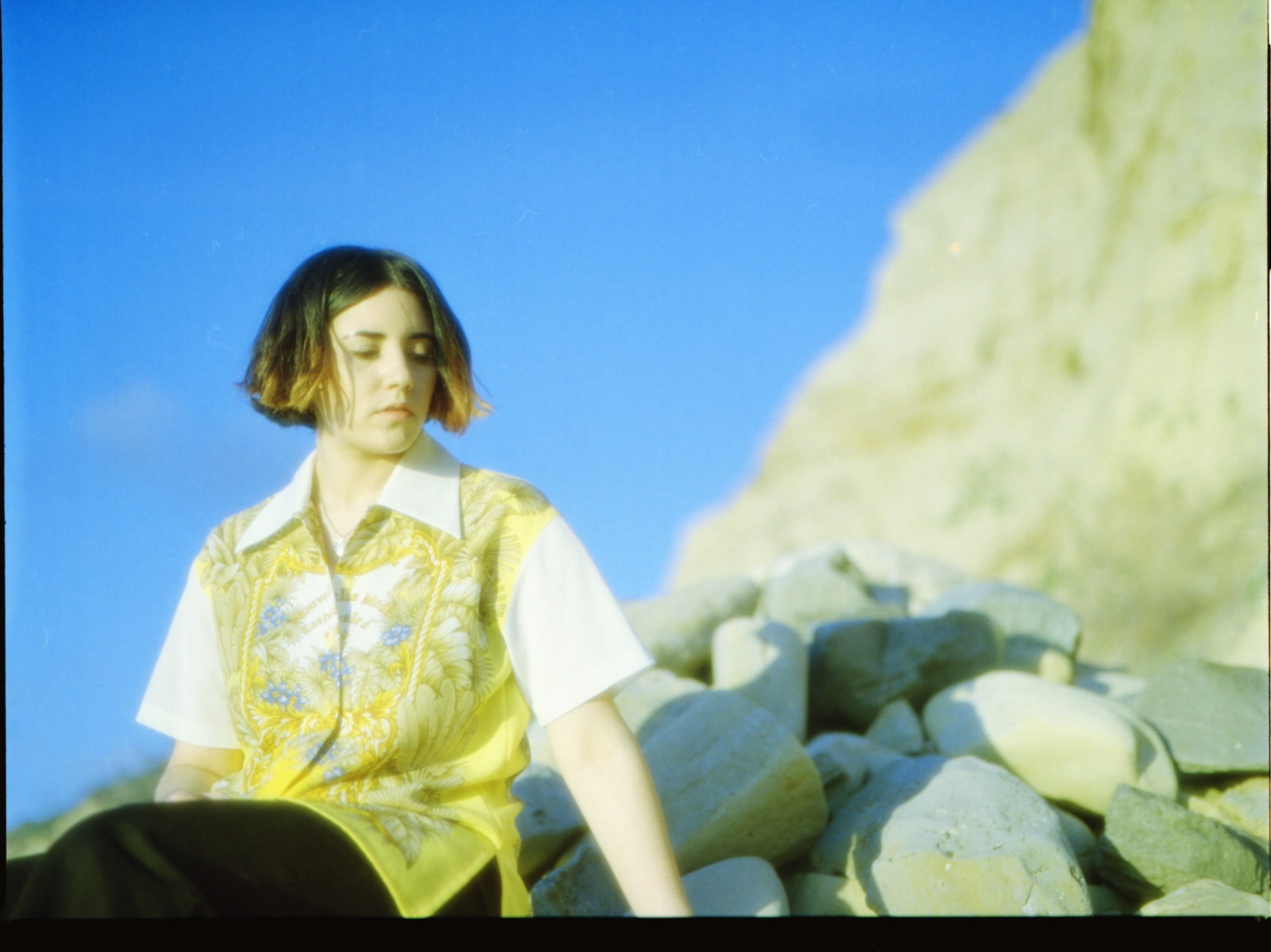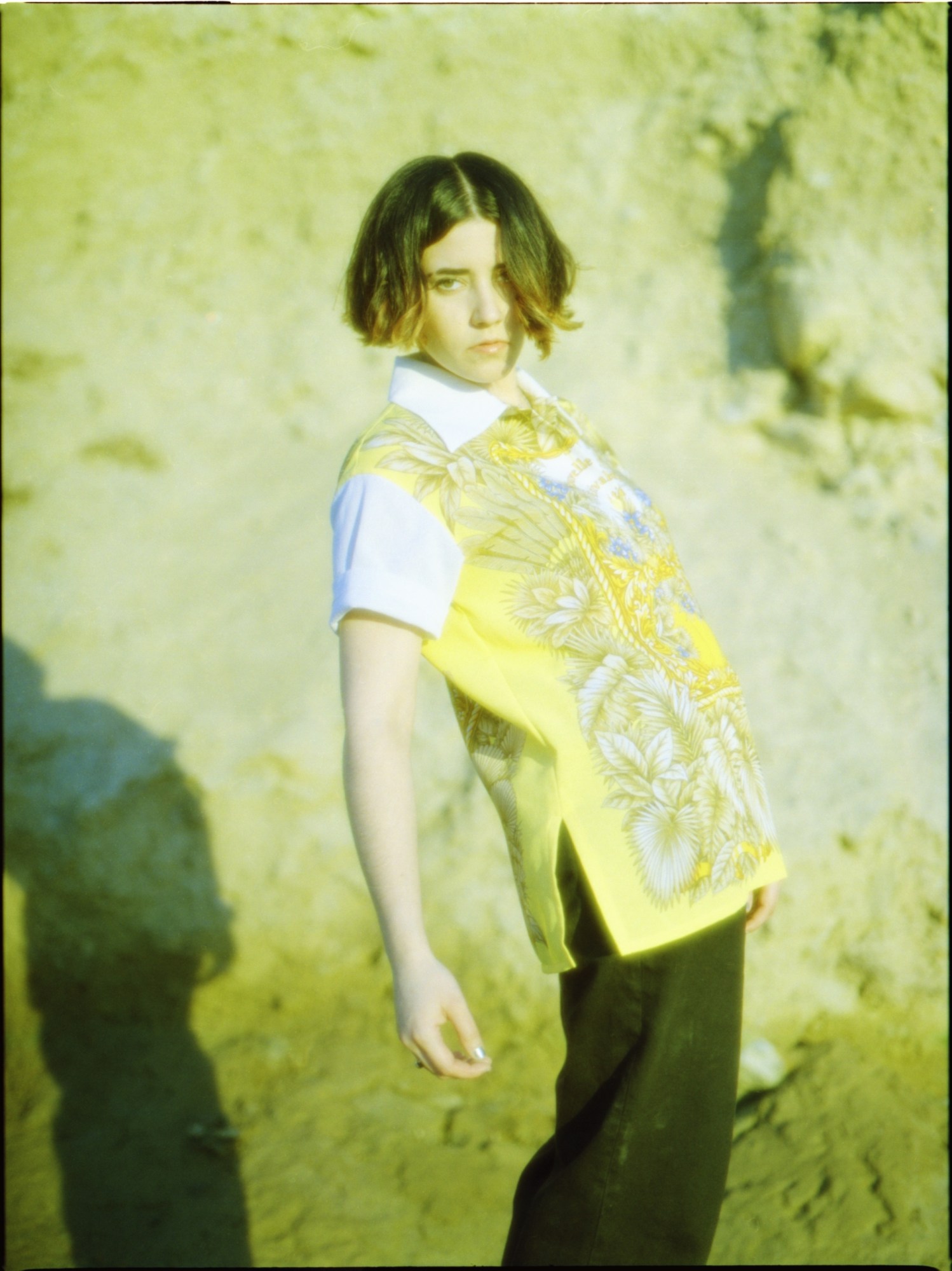Ukulele is probably not the first instrument you think of when listening to electronic music, but for Brooklyn-based Mexican musician Jackie Mendoza the instrument is integral to it. “I play a little bit of guitar and keyboard, but for some reason I like writing on the ukulele,” she says between sips of iced coffee. On her debut EP LuvHz, available April 26 via Luminelle Recordings, Mendoza’s ukulele whirrs and rumbles like a harp, adding an unusual seasoning to her psychedelic pop music.
To record LuvHz Mendoza teamed up with producer Rusty Santos, whose work on Animal Collective’s Sung Tongs and Panda Bear’s Buoys has long informed her own approach to crafting unconventional cables of sound. “Before I knew how to produce, I thought if I ever made music I’d want it to sound like this,” Mendoza says of Animal Collective’s enduring influence. “It’s kind of weird that I’ve now met Rusty and got to work with him,” she adds triumphantly.

She credits Santos with encouraging her to embrace her Latin roots, specifically reggaeton. He sewed the style into her music in microdoses, so that if you know, you know. It’s these kinds of subtleties that make Mendoza’s music transcendent. Different elements emerge over time — one day you’ll hear her pitched-down ukulele and the next you’ll you notice all the psychedelic techno beats. Then there’s her silky smooth vocals, sung in both Spanish and English. When Mendoza was a teen she was unsure about her voice, but it’s one of her finest assets. On LuvHz she sings about monogamy, polyamory, overcoming anxiety, and navigating a long-distance relationship. Ahead of LuvHz‘s release, i-D caught up with Mendoza to find out more about her debut album.
The song “De Lejos” is about overcoming the hardships of a long-distance relationship. Did writing music help you navigate that situation?
It was definitely a good form of expression, and for getting all those emotions out. Even my girlfriend, she would write and send me songs. It was like a pen pal situation, [except] instead of writing letters we would write songs for each other.
What can you tell us about the song “Seahorse”?
It’s about a specific family member that I have who is monogamous, but they are with someone who is polyamorous, so all the drama behind that and how it’s hard to come to one conclusion. It’s a tug and pull situation. I put myself in that person’s shoes and thought, “damn, they must want to be with that person so bad.” I don’t know how the theme of seahorses connected with that, it just developed over time, I guess. But initially it was inspired by seahorses.
And what can you tell us about “Mucho Más”?
That one is a pep talk to myself. One day I just didn’t want to leave my house, I felt so sad and anxious, and in my phone I wrote these words telling myself to calm down. Then I was in the studio with Rusty and we were playing around with ukulele sounds and he made this reggaeton-type beat. We started building this song together [and] those words came back to me. It was one take, I tried to do it again and I was like, “no, let’s just go with the first one.”
You sing in both Spanish and English. Does the language have an impact on the types of melodies and the rhythms you choose to use in a song?
It depends. If I produce the song first and the beats sound Latin-like, then I’ll sing in Spanish. If it doesn’t sound Latin at all, then I’ll just sing it in English. It’s always different, I never decide, “oh, this is going to be in Spanish.” Sometimes I write a song in Spanish and then I decide to change it to English. Lately I’ve been finding it hard to write in English because everything in English sounds cheesy to me. I don’t know why, I guess it’s my own insecurities. The words just sound cheesy.
You mentioned there is a Latin flavor to some of the beats. Are there any specific examples you can point to?
I’m not a reggaeton lover, that was Rusty, he brought that influence to the EP. Before I met with Rusty I gave him all my demos and he was like, “you’re singing in Spanish, we should add some of those urban vibes that people are listening to now.” At first I was like, “no, I don’t listen to reggaeton so why would I have that in my music?” But he added it and it fits really well.
You originally considered using the title of the EP ( LuvHz ) as your performing name. Why did you decide to stick with your own name?
Because I would tell my friends, “this is going to be my stage name,” and they would laugh. People were like, “that’s such a sad girl name.” The title has been in my head since 2014, but I decided to go with my name because people recognize it.
Having grown up on the border in Chula Vista, CA, do you feel any pressure to speak about issues related to immigration in your music?
I do. There’s always pressure to have an opinion, to stand up for a certain topic and speak about politics, but it’s kind of scary because no matter what you say, people could take it the wrong way. But I think what I’m doing is a statement in itself. I’m living here [in the US] and I’m singing in Spanish, it’s already standing [for something].
In 2017 you came out as bisexual and the reaction on social media was pretty mixed. Did you expect that type of response?
Since a lot of my followers are from Latin America and are more conservative, I knew there would be some negative feedback. Even a week ago I got comments like, “go kill yourself, you lesbian.” But at the same time, I still get messages that are like, “thank you for coming out, I’m also bisexual but my mom doesn’t accept it. Thank you for just speaking up about it.”
You recently made a Queeropedia playlist featuring artists who inspire you and it included a song by the electronic musician Abbi Press . How do you know her?
She’s actually one of the people that inspired me to play my music live. I used to go to her shows all the time. Before I was a friend I was a fan. I was like, ‘wow, she can do this, I can probably do this too.’ She was a big influence.
